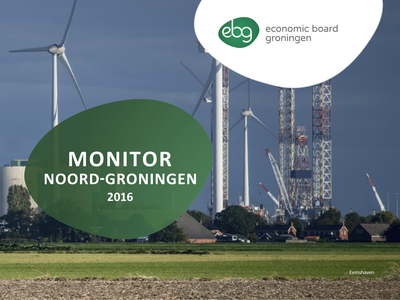In dit artikel vertalen de auteurs vier liedjes uit het Antwerps Liedboek (1544) in rijmend hedendaags Engels.
DOCUMENT

Hoe staan de negen gemeenten in het hart van het aardbevingsgebied in Noord-Groningen er voor? De Economic Board Groningen (EBG) liet economen van Hanzehogeschool Groningen en de Rijksuniversiteit Groningen er onderzoek naar doen.De Economic Board Groningen wil weten welke effecten het programma van EBG heeft op de economie van de negen gemeenten in het aardbevingsgebied. Om dat te kunnen vaststellen hebben economen van de Rijksuniversiteit Groningen en de Hanzehogeschool Groningen in opdracht van de Economic Board de huidige situatie in de negen Noord-Groninger gemeenten gemeten.
DOCUMENT

IL22 is an important cytokine involved in the intestinal defense mechanisms against microbiome. By using ileum-derived organoids, we show that the expression of anti-microbial peptides (AMPs) and anti-viral peptides (AVPs) can be induced by IL22. In addition, we identified a bacterial and a viral route, both leading to IL22 production by T cells, but via different pathways. Bacterial products, such as LPS, induce enterocyte-secreted SAA1, which triggers the secretion of IL6 in fibroblasts, and subsequently IL22 in T cells. This IL22 induction can then be enhanced by macrophage-derived TNFα in two ways: by enhancing the responsiveness of T cells to IL6 and by increasing the expression of IL6 by fibroblasts. Viral infections of intestinal cells induce IFNβ1 and subsequently IL7. IFNβ1 can induce the expression of IL6 in fibroblasts and the combined activity of IL6 and IL7 can then induce IL22 expression in T cells. We also show that IL22 reduces the expression of viral entry receptors (e.g. ACE2, TMPRSS2, DPP4, CD46 and TNFRSF14), increases the expression of anti-viral proteins (e.g. RSAD2, AOS, ISG20 and Mx1) and, consequently, reduces the viral infection of neighboring cells. Overall, our data indicates that IL22 contributes to the innate responses against both bacteria and viruses.
DOCUMENT
